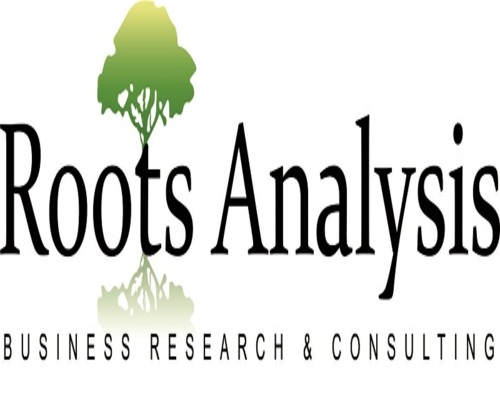Advances in molecular biology and tumor immunology have enabled the development of NSCLC targeting therapies, which have the ability to impede cancer growth by altering chemical reactions associated with oncogenic driver mutations
Roots Analysis has announced the addition of “Squamous Non-small Cell Lung Cancer Market, 2021-2031” report to its list of offerings.
Success of approved squamous non-small cell lung cancer therapies, such as Keytruda®, Opdivo® and Portrazza®, has resulted in a surge in interest of biopharmaceutical developers in this rapidly evolving domain. Presently, the ability of these therapies to effectively treat NSCLC, an aggressive form of lung carcinoma, justifies its potential as a promising disease management recourse. In addition, promising clinical results of pipeline candidates are anticipated to draw in more investments to support product development initiatives.
To order this 122+ page report, which features 81+ figures, please visit https://www.rootsanalysis.com/reports/squamous-non-small-cell-lung-cancer-market.html
Key Market Insights
More than 85 product candidates are being investigated to treat metastatic or advanced squamous NSCLC patients
More than 78% of the therapies are being evaluated in early stages, either as monotherapies or in combination with other products. Further, majority of these therapies (45%) are designed for administration via the intravenous route. It is worth highlighting that, till date, five biologics and one small molecule have been approved for the treatment of squamous NSCLC.
Several big pharma players have an advanced pipeline of drugs targeting squamous NSCLC
Over 34 companies engaged in this domain represent large / very large businesses. Although biologics emerged as the most prominent type of molecule in the overall pipeline, big pharma players were observed to prefer developing small molecules against lung carcinomas. Interestingly, 53% of such firms are based in North America.
240+ clinical trials for squamous NSCLC therapy focused clinical trials were registered, worldwide
Clinical research activity, in terms of number of trials registered, is reported to have increased at a CAGR of 56%, during the period 2017-2020. Of the total number of trials registered, close to 40% have already been completed, while 30% of the studies are actively recruiting participants.
Partnership activity has grown at an annualized rate of nearly 48%, between 2017 and 2020
Maximum number of partnerships were observed in 2020, indicating a recent increase in the activity. Majority of these agreements were reported to be product development and commercialization agreements, representing over 35% of the total number of instances.
The squamous non-small cell lung cancer market is projected to grow at a CAGR of 10.8% till 2030
Growth in this domain is anticipated to be primarily driven by encouraging clinical trial results and growing demand for targeted and personalized therapeutic modalities. Biologics currently capture a significant market share, with the maximum revenue generation potential being associated with monoclonal antibodies; this trend is unlikely to change in the foreseen future.
Key Questions Answered
- What are the prevalent R&D trends related to squamous non-small cell lung cancer?
- What are the key challenges faced by stakeholders engaged in this domain?
- What are the principal therapies being developed by the industry players?
- Who are the leading industry and non-industry players in this market?
- What are the contributions of big pharma players in this field?
- What are the key geographies where research on squamous non-small cell lung cancer is being conducted?
- Who are the key investors in this domain?
- Who are the key opinion leaders / experts in this field?
- What kind of partnership models are commonly adopted by industry stakeholders?
- What are the factors that are likely to influence the evolution of this upcoming market?
- How is the current and future market opportunity likely to be distributed across key market segments?
The financial opportunity within the non-small cell lung cancer market has been analyzed across the following segments:
- Type of Molecule
- Biologics
- Small molecules
- Type of Therapy
- Monotherapy
- Combination therapy
- Route of Administration
- Intravenous
- Intradermal
- Oral
- Subcutaneous
- Key Geographical Regions
- North America
- Europe
- Asia-Pacific and the Rest of World
The research includes detailed profiles of 22+ drugs being developed by key players (listed below); each profile features an overview of the developer, details related to its financial information (if available), recent developments and an informed future outlook.
- Akesobio
- Alphamab Oncology
- Arcus Biosciences
- Astrazeneca
- BeiGene
- Boehringer Ingelheim
- Bristol Myers Squibb
- Cadila Pharmaceuticals
- Eli Lilly
- GlaxoSmithKline
- Hengrui Medicine
- Henlius
- Innovent Biologics
- Junshi Biosciences
- Macrogenics
- Merck
- Novartis
- Pfizer
- Regeneron
- Roche
- SinoCellTech
For additional details, please visit
https://www.rootsanalysis.com/reports/squamous-non-small-cell-lung-cancer-market.html or email sales@rootsanalysis.com
You may also be interested in the following titles:
- RAS Targeting Therapies Market, 2021-2031
- Novel T-Cell Immunotherapies Market, 2021-2030
- HER2 Targeting Therapies Market, 2021-2030
Contact:
Ben Johnson
+1 (415) 800 3415
+44 (122) 391 1091
Ben.johnson@rootsanalysis.com
Media Contact
Company Name: Roots Analysis
Contact Person: Gaurav Chaudhary
Email:Send Email
Phone: +1 (415) 800 3415, +44 (122) 391 1091
City: London
Country: United Kingdom
Website: https://www.rootsanalysis.com

